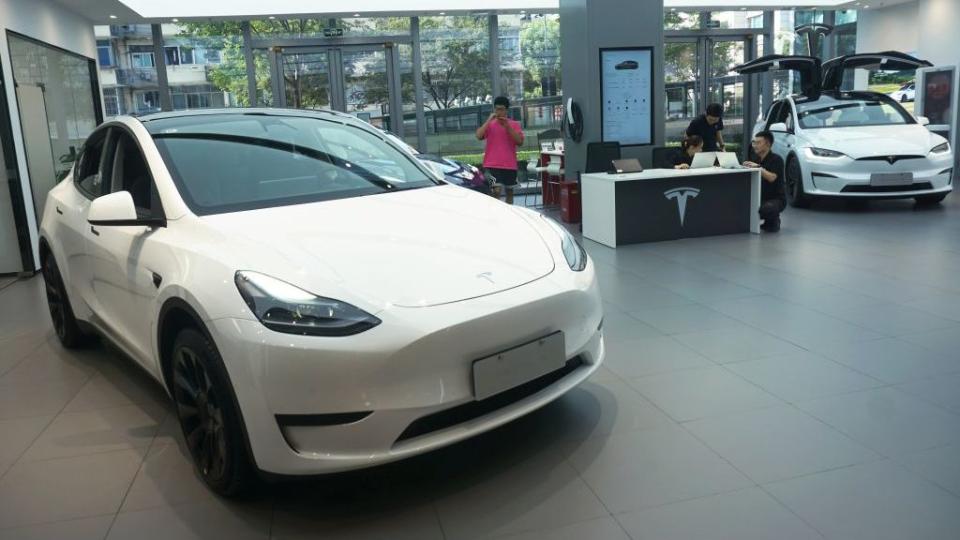Exactly Why Tesla Is Eyeing Turkey for Its Next Factory

Tesla CEO Elon Musk visits with Turkish President Recep Tayyip Erdogan in New York, as speculation grows over Tesla's next overseas plant location.
The EV maker's two latest gigafactories were launched in Texas and in Germany, with the former aimed at Cybertruck production.
Tesla is thought to be considering other options for the site of its next plant, including India.
Tesla has been on something of a factory-building spree early on in this decade, and it's not done yet. After bringing online the Austin, Texas, and Berlin gigafactories in 2022, the automaker is currently in the early stages of planning a new site in Mexico. But it won't open for a few years.
It has been Europe, however, where Tesla has faced the most demand growth, especially early on in the pandemic when EV sales surged in western Europe.
After exporting cars from gigafactory Shanghai and from the US to Europe, Tesla has been able to begin production at its Berlin-Brandenburg site in 2022, which was built entirely during the pandemic—a rare feat in the industry.
Now, Tesla is now said to be looking at Turkey for its next plant location, months after rumors arose that it was also considering India.
Tesla CEO Elon Musk met with President Recep Tayyip Erdogan just before the United Nations General Assembly in New York this week, amid a PR push by the country to host Tesla's next plant.
But the timing of the decision, as well as plant construction, remains uncertain. Earlier this year Musk was said to be scheduled to make a decision on Tesla's next overseas plant sometime in 2023, though it's unclear if this urgency remains.

Tesla's first and only plant on the European continent, just outside of Berlin, was a curious choice in many regards, first and foremost from the standpoint of land and labor costs, if not proximity to suppliers.
At the time, Berlin-Brandenburg was viewed by some industry analysts as a location no German automaker would consider for a new plant, simply due to labor costs.
In fact, quite a bit of Germany's auto industry had moved to countries in Eastern and Central Europe over the past three decades, including the Czech Republic, Slovakia, and Hungary, amid yet another wave of industrial migration to China.

Turkey, on the other hand, would certainly offer Tesla lower labor and energy costs than many other countries in the region, with a number of automotive suppliers already calling the country their home.
The country would also be an effective location for export to other parts of Europe, Central Asia, and the Middle East—an advantage that India would not be able to match.
Turkey (or another overseas plant) won't be the site of production for Tesla's $25,000 car, at least not at first. The timing required for the construction of a new plant won't match the expected timeline of the automaker's planned affordable model, development of which is currently thought to be concluding.
If Tesla waits any longer, such as for the completion of a new plant, its planned $25,000 car could arrive in a drastically different landscape where Tesla will face plenty of competitors in this segment at home and overseas.
This is already happening in China where several affordable EVs priced below $20,000 have debuted and have managed to see a lot of market success in a short period of time.
At the moment, Tesla's most immediate priority is the start of full-scale Cybertruck production in Austin, Texas, with the first delivery event still expected to take place in the fall of this year.
Share your thoughts in the comments below.

 Yahoo Autos
Yahoo Autos 